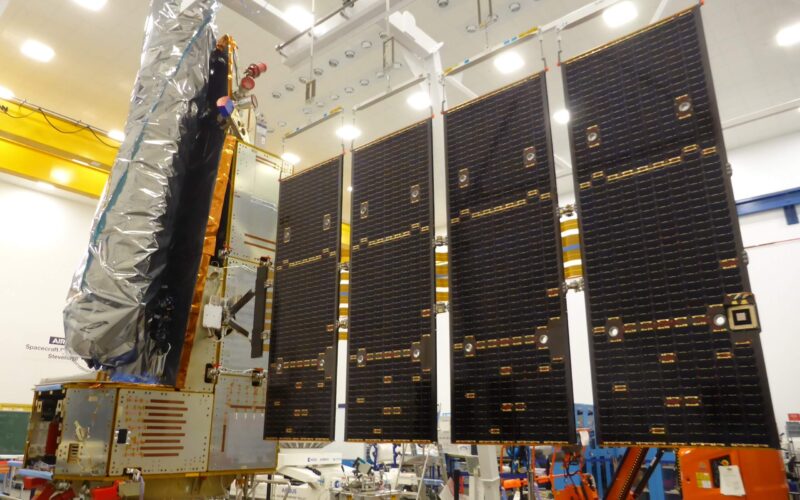A satellite to measure the world’s forests and help tackle climate change is undergoing final testing ahead of launch.
The European Space Agency (ESA) satellite, named “Biomass”, left the Airbus Defence and Space site in Stevenage, the United Kingdom, on November 2, 2022. It is now heading to Toulouse, France, for final testing ahead of launch.
“Biomass will be able to measure the world’s forests on a global scale – a true world first,” Richard Franklin, Managing Director of Airbus Defence and Space UK commented in a statement. “It will give scientists vital information about just how much carbon is locked up and also being absorbed by the “lungs” of the planet enabling better decisions to be made on tackling climate change.”
Forests can influence the weather and have a cooling effect on the climate. If they die, the carbon stored within them is released and thus the planet loses some climate regulating ability. Airbus has previously noted that forests are shrinking at a rapid rate, with 11 million hectares being lost since 2010, equivalent to roughly 30 soccer fields per minute.
Airbus and ESA plan to launch Biomass from Kourou, French Guiana with a Vega rocket in 2024. Set to orbit at 600km above Earth, it is part of ESA’s Earth Explorer mission to calculate forest biomass to evaluate terrestrial carbon stocks and fluxes.
Dr Paul Bate, CEO of the UK Space Agency, said the satellite is the first one capable of studying the world’s forests in three dimensions and will provide information on how they store carbon. “With this information, organizations and authorities around the world will be able to measure key changes in our forests, predict what the impact will be, and take early action to prepare for, or even correct, that, as well as work towards critical net zero targets.”
The spacecraft will carry the first space-borne P-band synthetic aperture radar, which Airbus says will provide “exceptionally accurate” maps of various forest biomass that are not obtainable by ground measurement techniques.
What tests need to be done?
According to Airbus, the environmental test program for Biomass will cover various areas, including acoustics, electromagnetic compatibility, mechanical vibration, as well as vacuum trials.
The tests are designed to imitate launch conditions and the harsh conditions in orbit.
Airbus noted that the COVID-19 pandemic had led to production and manufacturing challenges, but that the team in Stevenage had managed to complete mechanical and electrical integration and tests.
The test campaign in Toulouse will be led by 20 UK engineers, helped by colleagues onsite and from Airbus in Friedrichshafen. Alongside testing, the UK team will make preparations for the in-orbit commissioning stages and a separate team will manage delivery of the ground calibration transponder.

